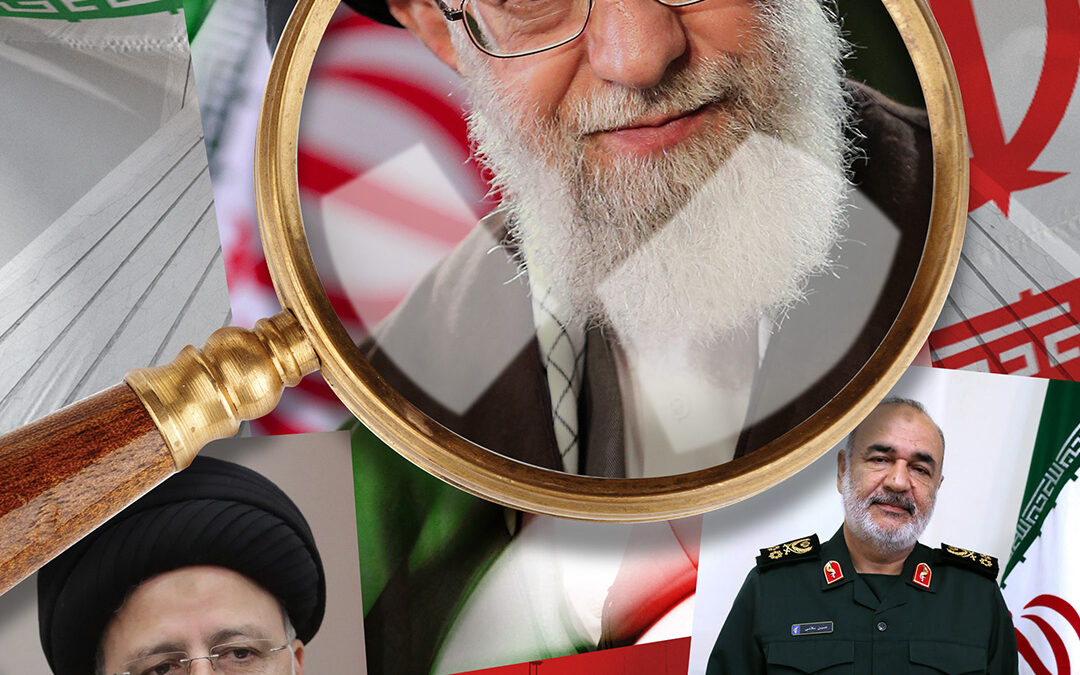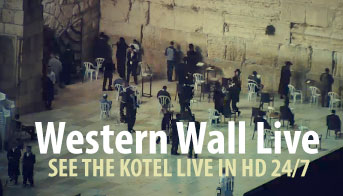Supreme Leader Grand
Ayatollah Ali Khamenei
Born in 1939, Ali Khamenei claims to be descended from Ali ibn Abi Talib, a cousin of Mohammed and the first Imam of Shi’a Islam. Within Iran, his office gives him absolute power and authority. Khamenei was a top ally of Ayatollah Khomeini during the Iranian revolution. Following the overthrow of the Shah, he served as Iran’s Secretary of Defense and was appointed to lead Friday prayers in Tehran.
In 1981, after surviving an assassination attempt that left his right arm permanently paralyzed, Khamenei was installed as president of Iran. In his inaugural address, Khamenei promised to eliminate “deviation, liberalism, and American-influenced leftists.” During the Iran-Iraq war which started in 1982, Khamenei developed close ties to the leaders of the Revolutionary Guards.
Khamenei remained in office as president until 1989, when following the death of Ayatollah Khomeini, he was selected by the Council of Experts to be the spiritual leader of the Islamic Republic. The office of supreme leader, as established by Ayatollah Khomeini is to serve as a “theocratic guardian” of the people. No law passed by the government may take effect without his approval. Even those who are elected to office only serve if he deems them fit for the position.
One observer described Khamenei as the “omnipotent overseer of Iran’s political scene.” Khamenei rarely speaks in public and has established a firm policy of not meeting with representatives or leaders of any Western government. He does appear on Iranian television with foreign leaders from Muslim nations and the representatives of groups like Hamas and Hezbollah. Under his leadership, Iran has poured billions of dollars into training and arming various terrorist organizations.
Khamenei promoted the candidacy of Mahmoud Ahmadinejad to serve as president when he first ran for office, and again in 2009 as a bulwark against reform efforts. The 2009 election was marked by massive fraud and allegations of government interference. Following massive protests, in which a large number of Iranians were killed, the government consolidated its grip on power. The two men were once close, but reports of rifts between them followed the removal of several key Ahmadinejad allies from their government posts.
Khamenei is no fan of tolerance. His persecution of Christians, the Baha’i community, and even Sunni Muslims has been harsh. As president, Khamenei signed a declaration that called for members of minority groups to have their “progress and development blocked” and keep those who openly practice religion from attending school or gaining meaningful employment.
Among the demonstrations of his absolute power are his edict closing public music schools because music education corrupts the minds of young children, and his forbidding the parliament of Iran from even debating the laws governing the press. Khamenei also appoints the members of the Council of Guardians, who select those who will be allowed to run for office.
Khamenei once said that it is “clear that conflict and confrontation between [the Islamic Republic of Iran and the U.S.] is something natural and unavoidable.” He described the United States as “trying to establish a global dictatorship and further its own interests by dominating other nations and trampling on their rights.” In a speech to Iranian students in 2008, Khamenei said, “the Iranian people’s hatred for America is profound. The reason for this [hatred] is the various plots that the U.S. government has concocted against Iran and the Iranian people in the past 50 years. The Americans have not only refused to apologize for their actions, but have continued with their arrogant actions.”
The Iranian leader reserves his harshest words for Israel. He stated publicly that, “this cancerous tumor of a state [Israel] should be removed from the region.” In a 2008 sermon Khamenei declared that “it is incorrect, irrational, pointless and nonsense to say that we are friends of the Israeli people.”
President Ebrahim Raisi
The eighth president of the Islamic Republic, Ebrahim Raisi was born on December 14, 1960. His father died when he was five, and Raisi attended a number of schools. At the age of 15, four years prior to the Islamic Revolution that overthrew the Shah, he began studying at Qom Seminary. There is considerable dispute as to the extent of his studies. He has claimed to have a doctorate, but no records have been found to support that. He has also claimed to be an Ayatollah, but again there does not appear to be any basis for that claim.
After the revolution when Ayatollah Khomeini came to power, Raisi was appointed as a prosecutor. He rose through the ranks and was moved to Tehran. Raisi has been named as one of the members of the “death committee,” which met to assign the penalties for those deemed not to be sufficiently in agreement with the new Islamic Republic. Though the government officially recognizes less than 4,000 deaths, outside groups like Amnesty International place the death toll at more than 30,000.
In addition to his service as chief prosecutor in Tehran, Raisi was later named First Deputy Chief Justice of Iran. After ten years in that post, he was designated Iran’s Attorney General. Raisi continued to distinguish himself as a hard-liner, even by the extreme standards of the government of Iran.
In 2017 Raisi ran against the incumbent president, Hassan Rouhani. Other ultra conservative candidates dropped out of the race and threw their support behind him, but in the end, Raisi received only 38 percent of the vote, and Rouhani was elected to a second term. In 2021, Raisi ran again for the open office of president. This time he received 68 percent of the vote, although there were widespread allegations of voting irregularities. Opposition candidates claimed the vote was rigged, but Raisi became president nonetheless.
Raisi made it clear from the beginning that he was committed to continuing Iran’s hostility toward Israel. He picked Ahmad Vahidi to serve as Minister of Interior in his government. Vahidi was involved in the deadly terror attack in Buenos Aires, Argentina, in 1994 that killed 85 people and injured more than 300 others at a Jewish community center.
His term in office has been marked by widespread protests across Iran, and the people demand the freedoms and reforms they have been promised. But Raisi continues in power, and is expected to run for reelection when his current term ends in 2025. He has been officially named by the United States government and sanctioned for human rights violations. He has been unable to travel outside the country for fear of arrest.
In 2006 Raisi was named to Iran’s Council of Experts, the 86 member body that selects Iran’s leaders and approves all candidates for office. He began serving his second ten-year term in that body in 2016. It is widely believed that if the current Supreme Leader were to die, Raisi would become the third Ayatollah of the Islamic Republic of Iran. His hatred of Israel is well-known, and he is one of the strongest voices in defense of Iran’s nuclear weapons program.
Major General Hossein Salami
In April of 2019, Ayatollah Khamenei appointed Hossein Salami to be the head of the Army of the Guardians of the Islamic Revolution of Iran (the Revolutionary Guards). Since the revolution in 1979, this has been one of the most powerful positions in the government of Iran. Salami replaced Major General Mohammad Jafari who had held the post since 2007.
Salami was a student at the Iran University of Science and Technology in Tehran when the Iran-Iraq War started. He left school to serve in the army, returning after the war was over to finish both undergraduate and graduate degrees.
Salami has served in Iran’s military ever since, rising through the ranks to become a major general. He carries on his country’s forty-year hatred of Israel. In January of 2019, Salami told an Iranian television station that the “Zionist regime” needed to be wiped off the map. Salami previously served as deputy commander of the Revolutionary Guards and is known to be very hardline against both Israel and America.
The Revolutionary Guards are a radical group even by Iranian standards. They are the most committed to ensuring the ideological purity of the regime and enforcing the standards of strict Islamic law on everyone in Iran. The group is also a major supporter of world terrorism, and many of its top officials, including Salami have been personally sanctioned by the European Union and other Western powers.
Show Your Support By Giving Now






